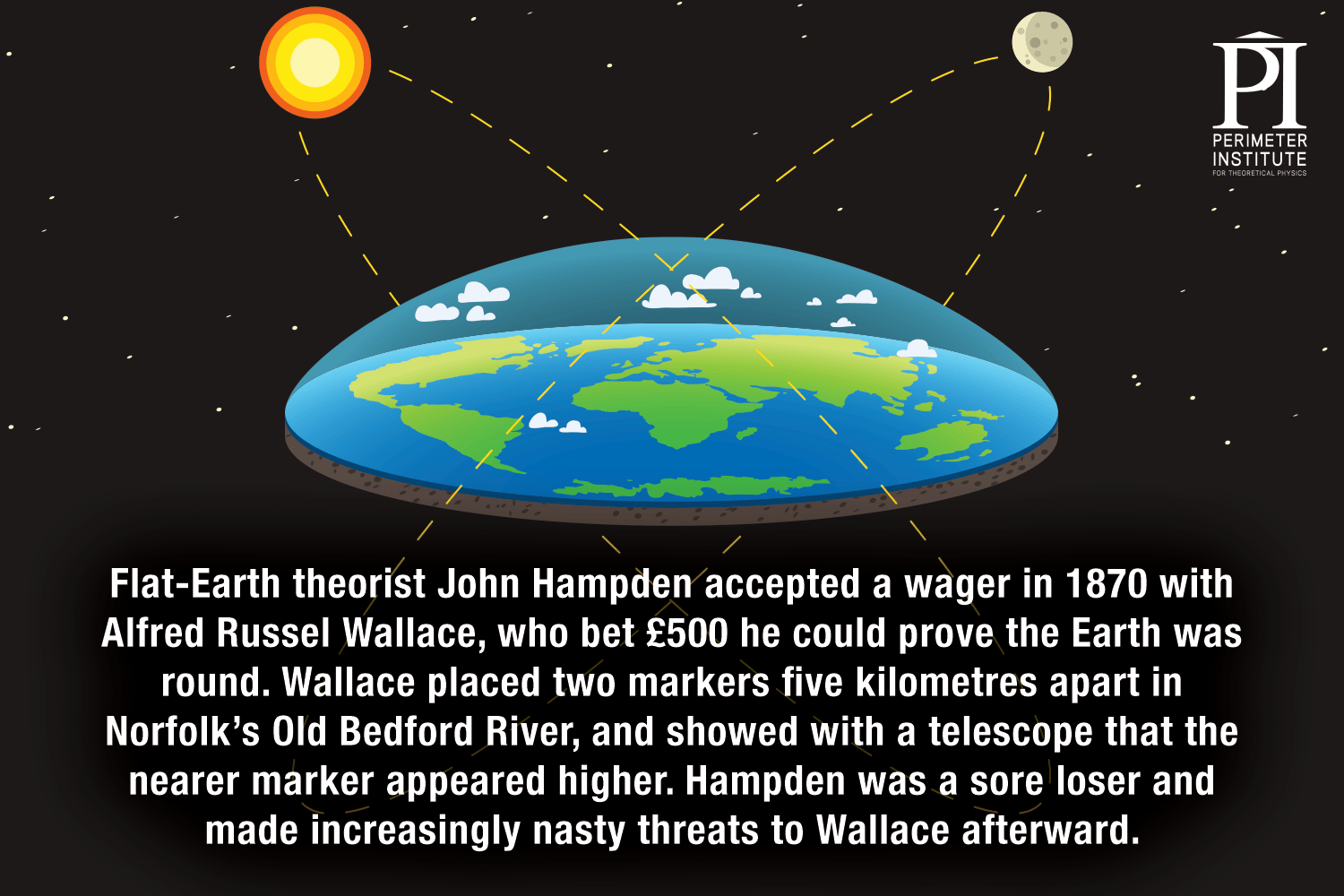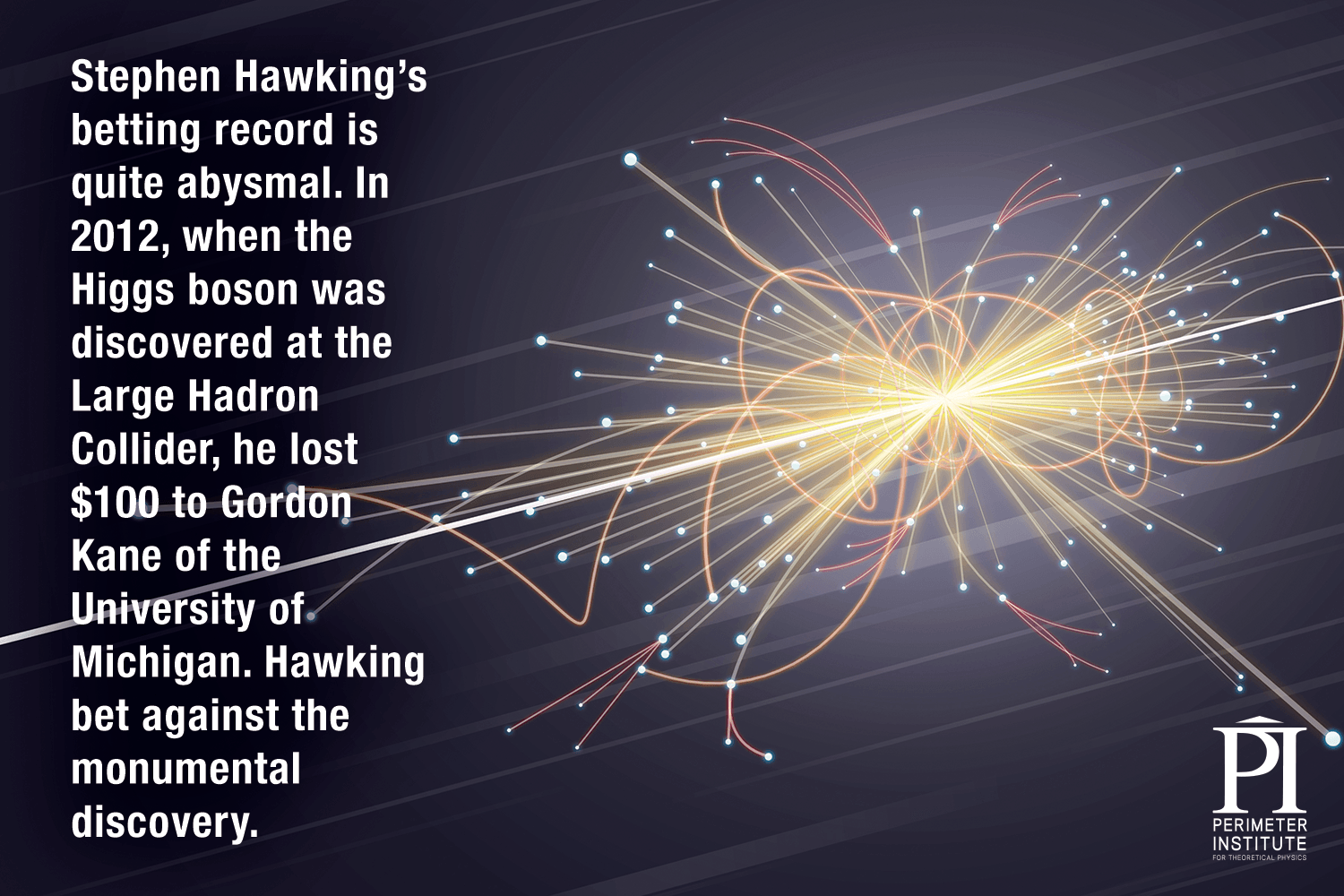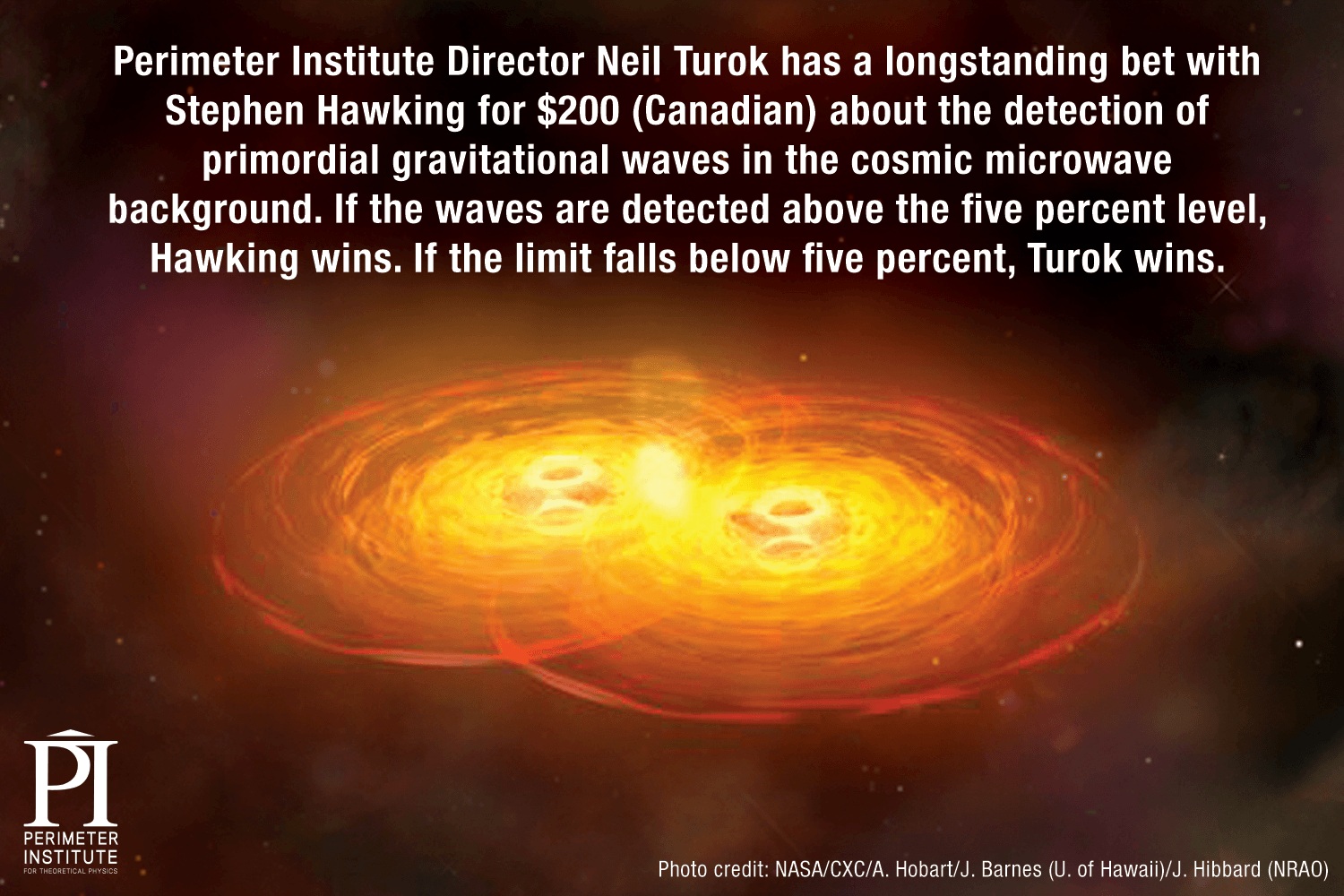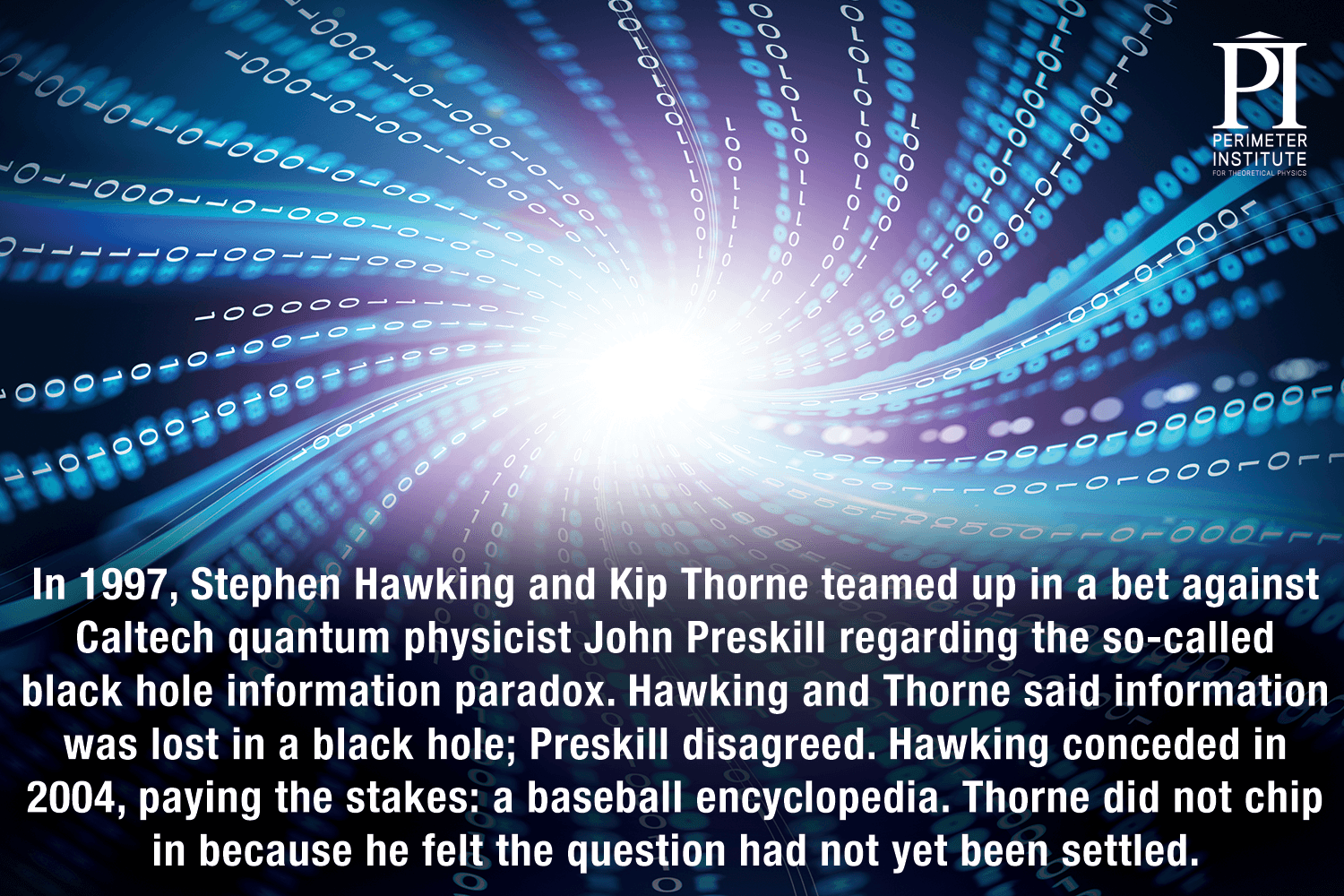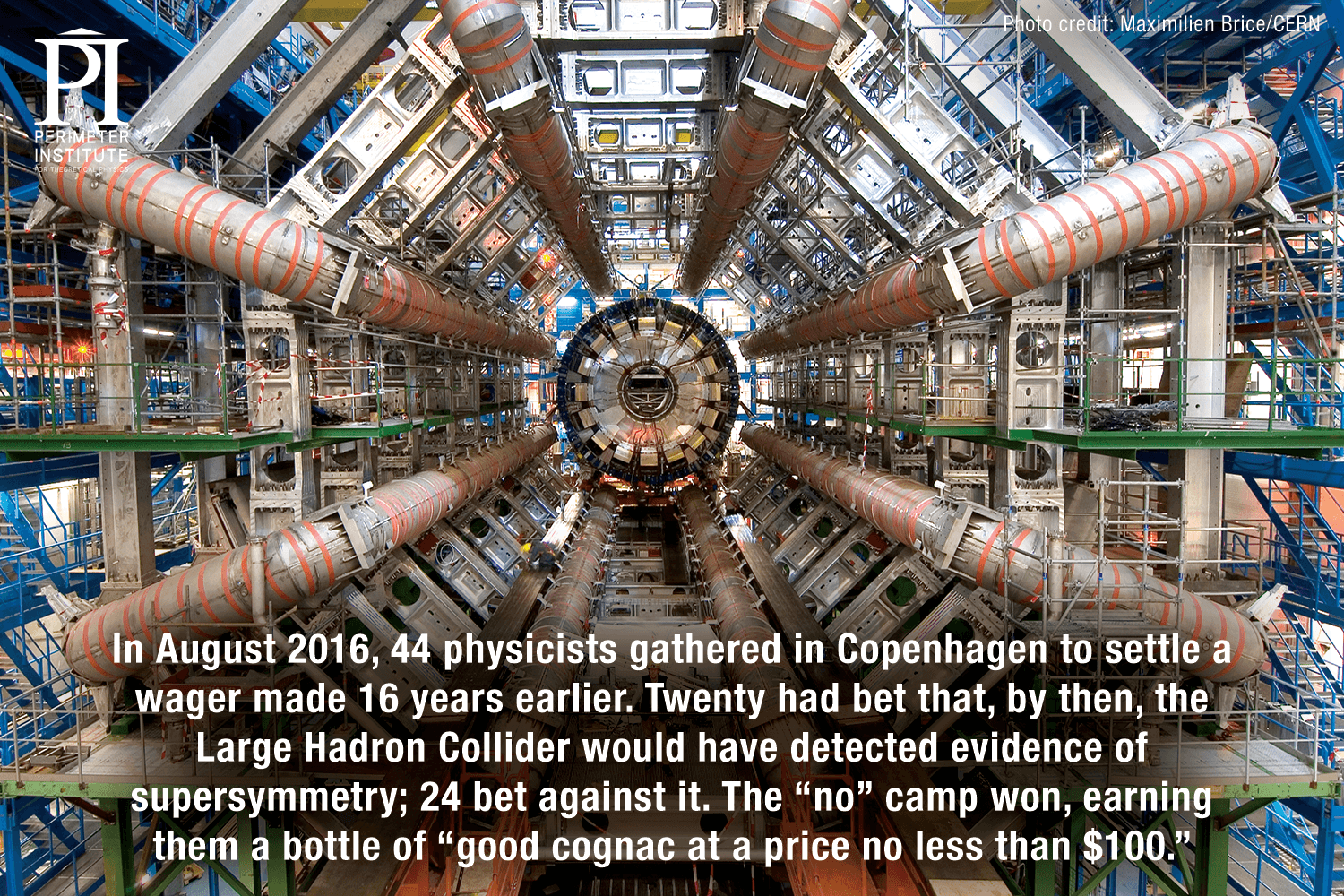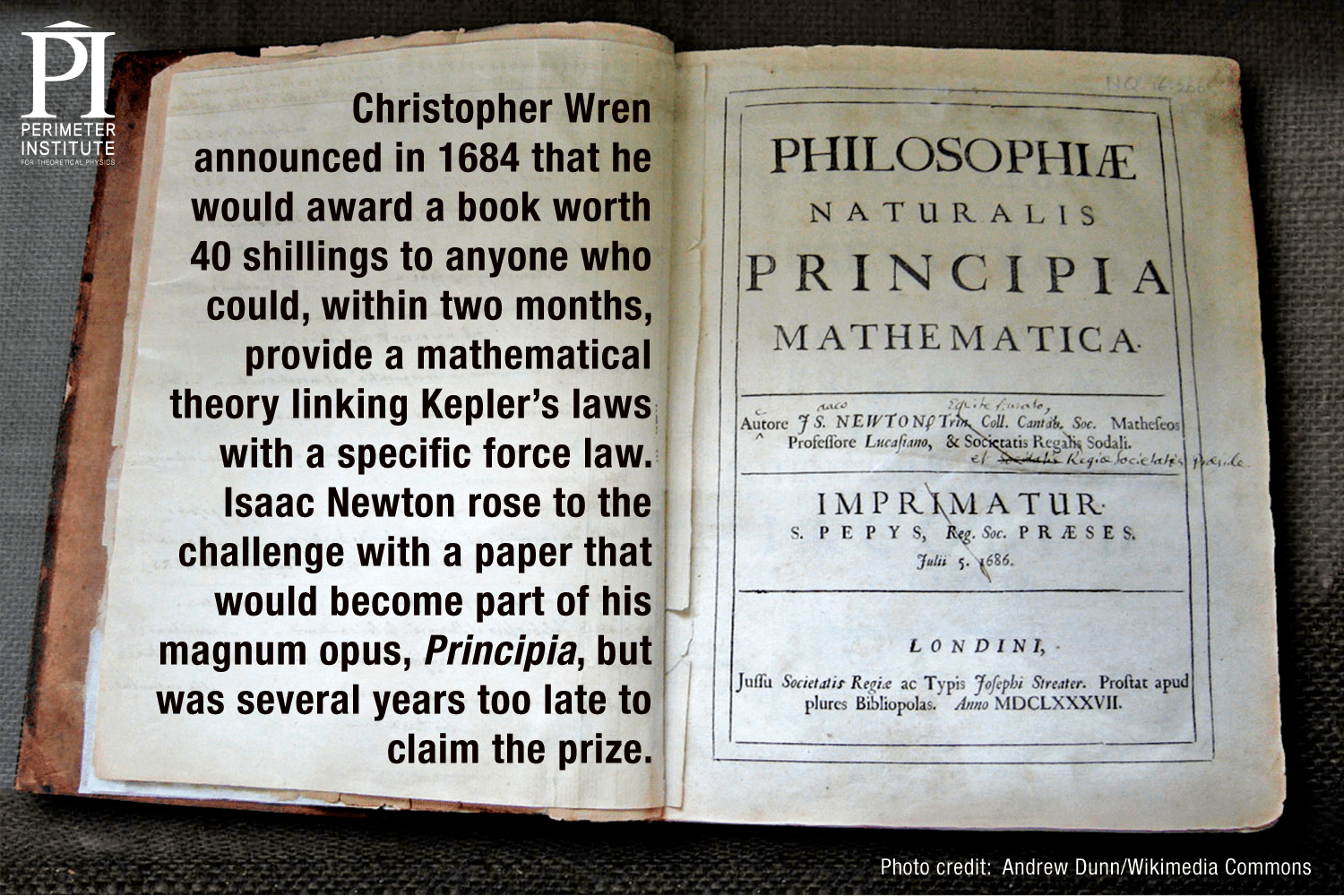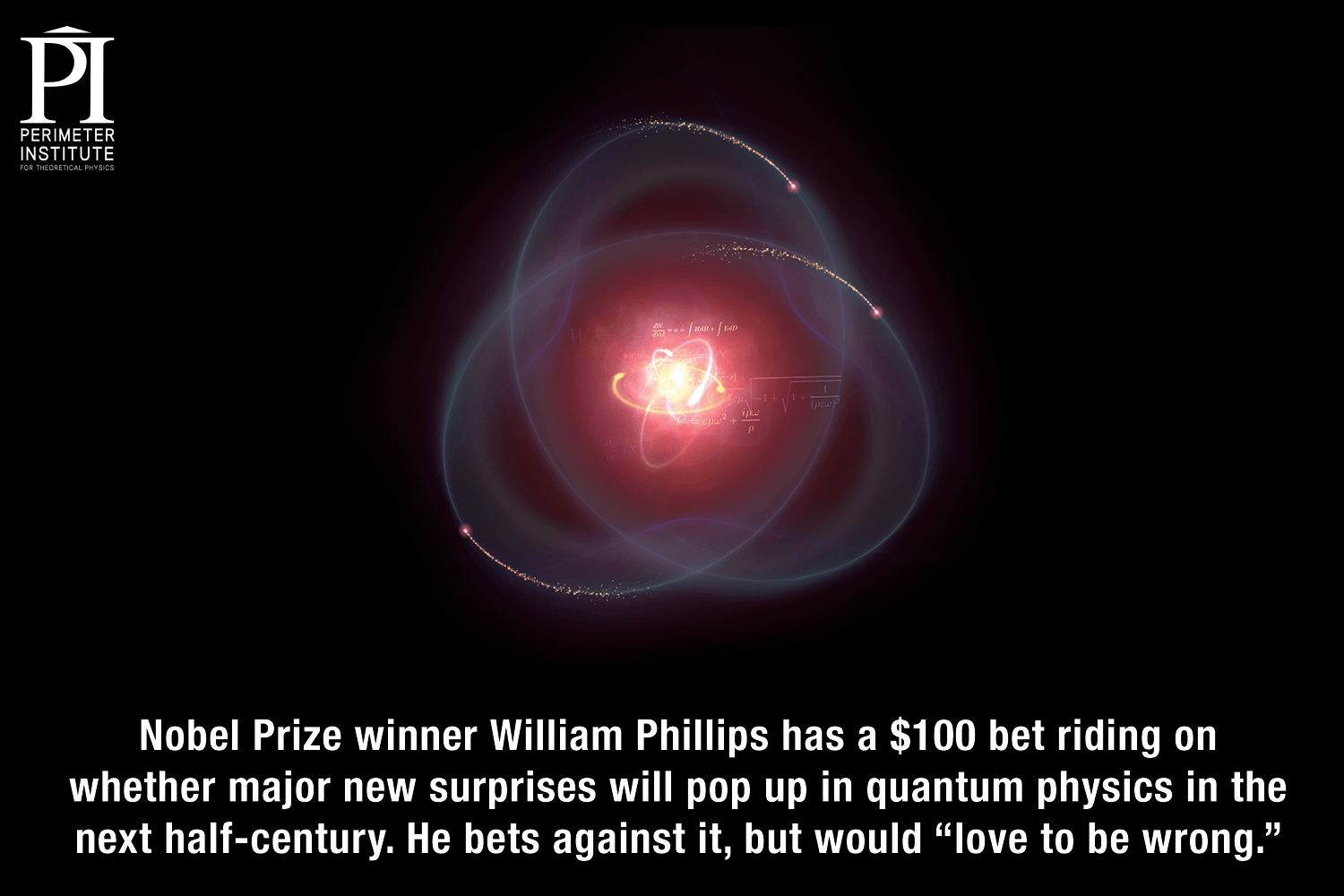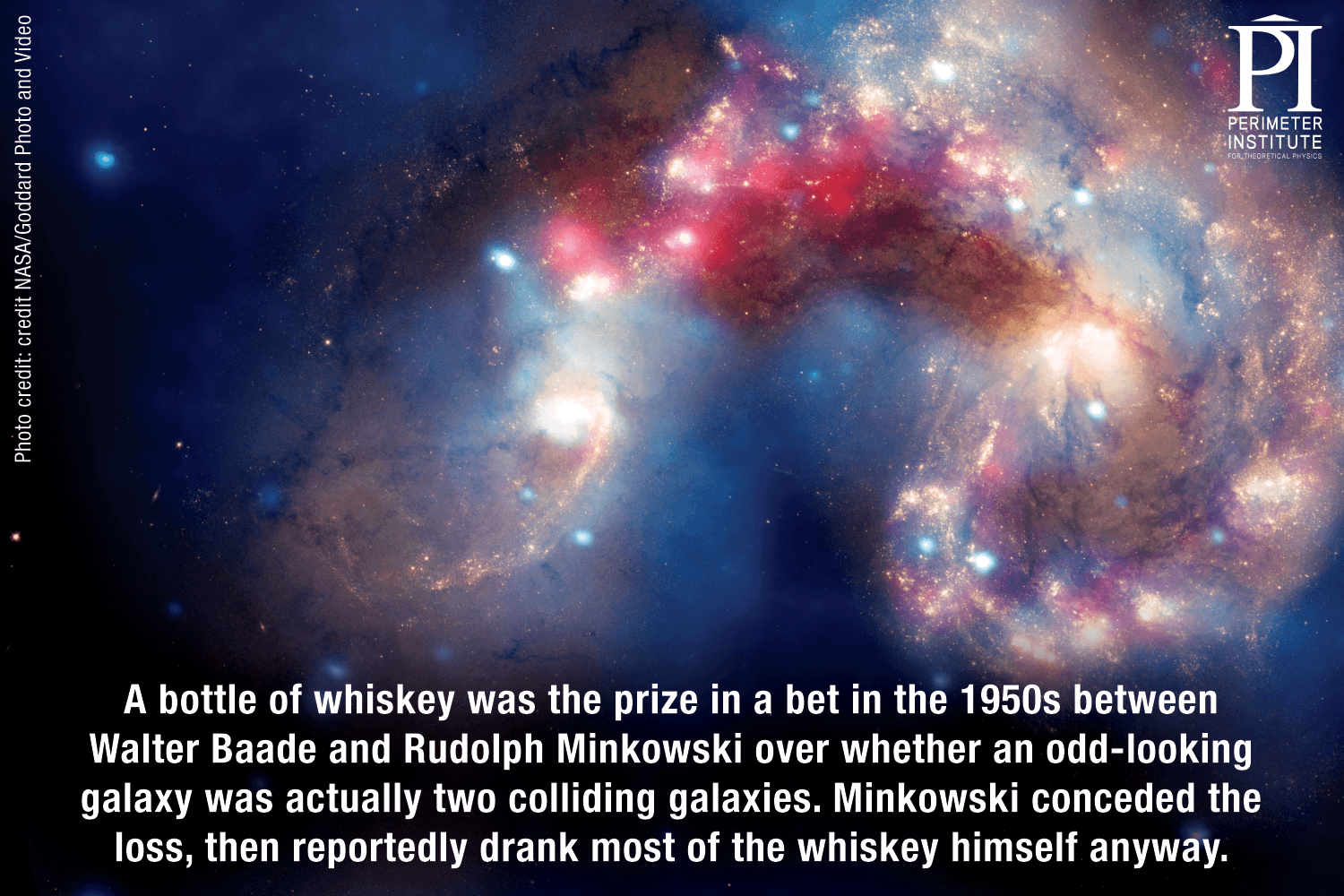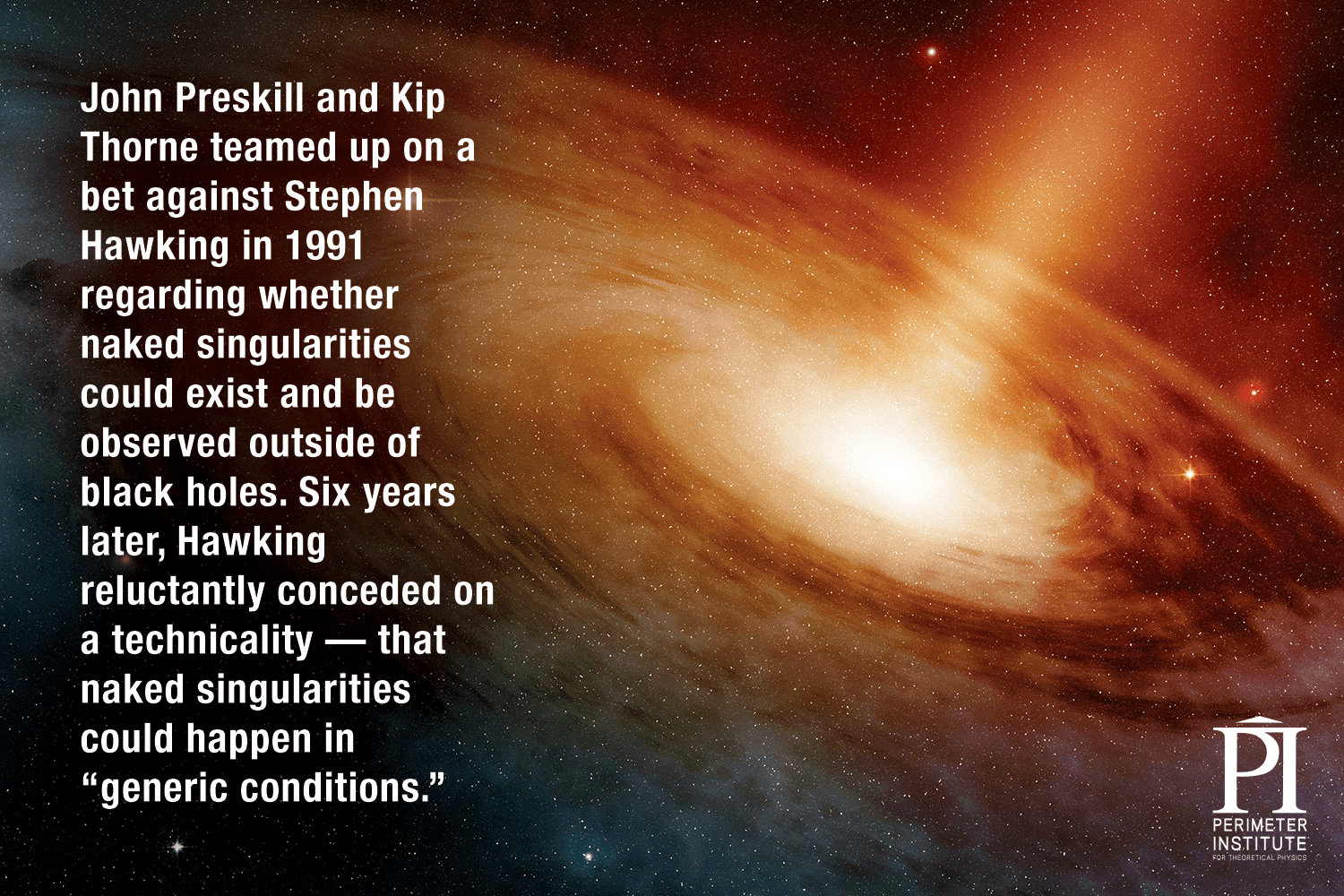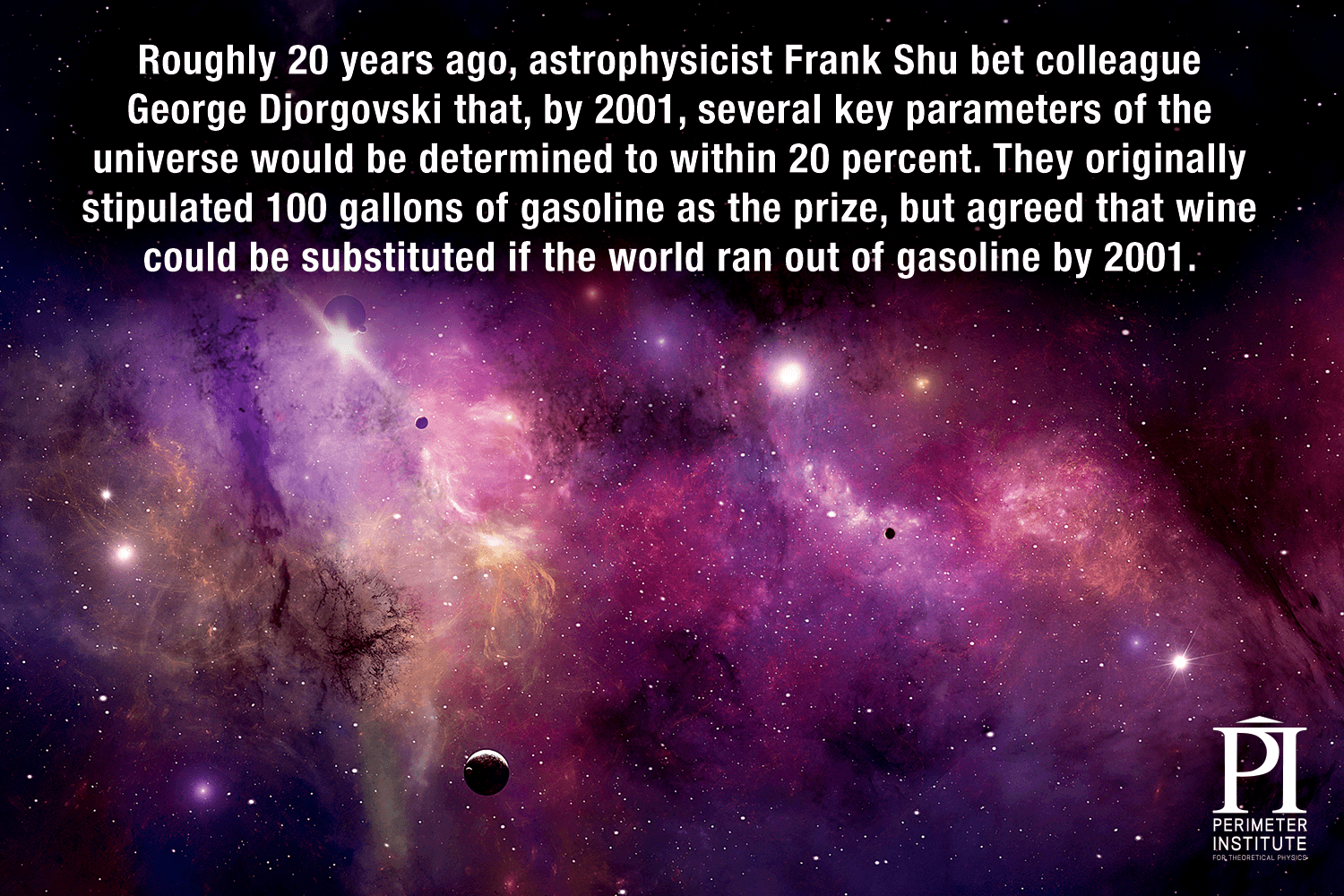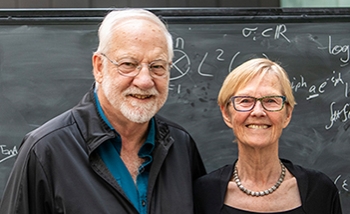While science usually makes progress through rigorous research, testing, and verification, sometimes a hunch — and a little friendly competition — can push scientists to keep digging for the truth.
The time-honoured tradition of scientific wagers adds stakes (usually very, very low stakes) and levity to the scientific process.
A bet led Isaac Newton to write what would evolve into his masterwork, Principia. Stephen Hawking might be the world’s most famous present-day scientist, but that doesn’t mean he knows all the answers: despite numerous wagers, he has a terrible win-loss record.
Said Hawking’s colleague John Preskill, who has won some of these bets: “Although Stephen Hawking is without doubt a great scientist, he’s a bad gambler.” (To Hawking's credit, many believe he deliberately makes long-odds wagers in order to bring attention to interesting scientific debates.)
Here are some of the greatest wagers — some settled, some still outstanding — in physics history.
Learn more about the Bedford Level Experiment.
Watch the mini-documentary Hawking at the Perimeter.
Read more about the search for primordial gravitational waves.
Watch a short video explaining the black hole information paradox.
Watch a short introduction to supersymmetry by Perimeter Distinguished Visiting Research Chair S. James Gates Jr.
Watch a talk by physicist Barry Barish that explores "the hidden dispute behind Newton's Principia."
Watch an excerpt of William Phillips' public lecture at Perimeter Institute.
Read the story of Cygnus A (and why many researchers now believe Minkowski was actually justified in drinking the whiskey).
Read a 1997 New York Times article about this wager.
Read "Putting Their Money Where Their Minds Are," a New York Times article about scientific wagers.
About PI
Perimeter Institute is the world’s largest research hub devoted to theoretical physics. The independent Institute was founded in 1999 to foster breakthroughs in the fundamental understanding of our universe, from the smallest particles to the entire cosmos. Research at Perimeter is motivated by the understanding that fundamental science advances human knowledge and catalyzes innovation, and that today’s theoretical physics is tomorrow’s technology. Located in the Region of Waterloo, the not-for-profit Institute is a unique public-private endeavour, including the Governments of Ontario and Canada, that enables cutting-edge research, trains the next generation of scientific pioneers, and shares the power of physics through award-winning educational outreach and public engagement.
You might be interested in


